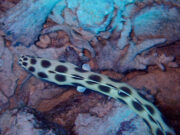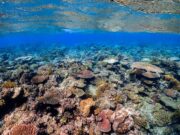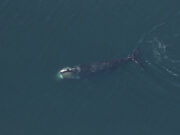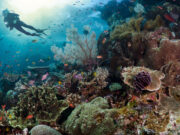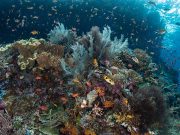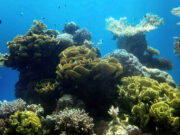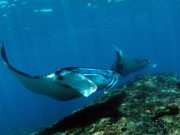Coral reefs are often referred to as the “rainforests of the sea” due to their immense biodiversity and vital role in supporting marine life. These underwater ecosystems are more than just visually stunning dive sites; they are lifelines for countless marine species and essential to the health of our oceans. Yet, coral reefs face unprecedented threats.
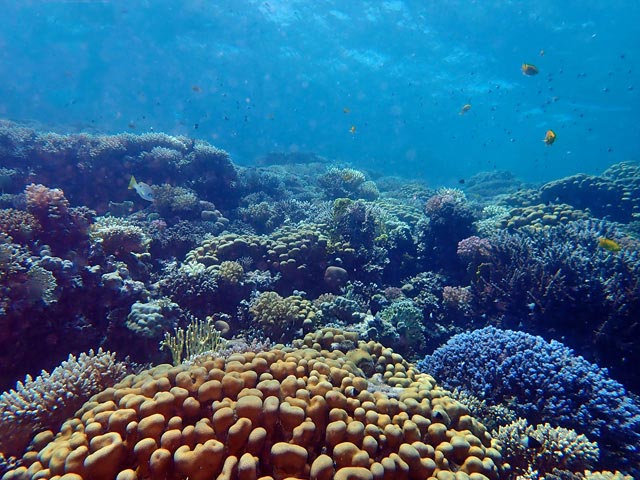
While the challenges are immense, it is not too late to make a difference for coral reefs. As divers we have a unique connection to ocean ecosystems and a responsibility to conserve them. This article investigates why coral reefs matter, the challenges they face and what we can do to protect them.
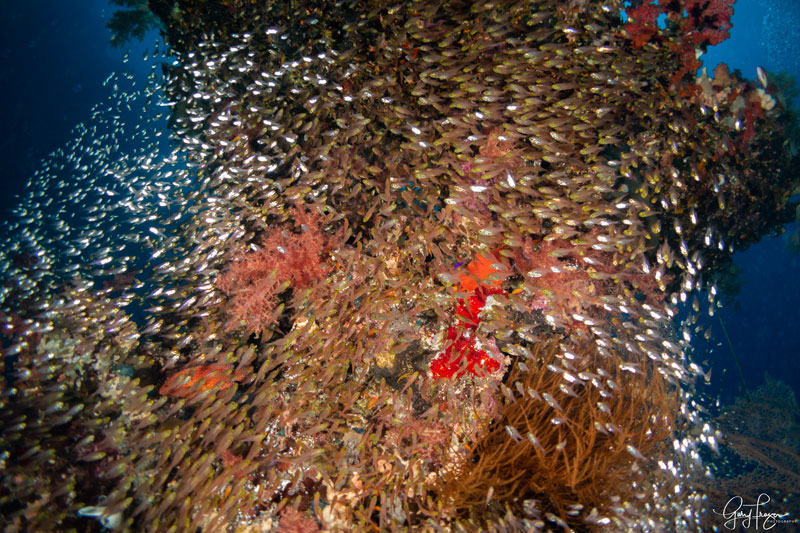
Four Reasons why coral reefs matter
1. They support over 25% of all marine species
Coral reefs occupy less than 1% of the ocean floor but support over 25% of all marine species. These biodiversity hotspots provide critical habitats and food for a wealth of marine life: reef fish and visiting pelagics, invertebrates, sea turtles, sharks and rays, marine megafauna and tiny critters.
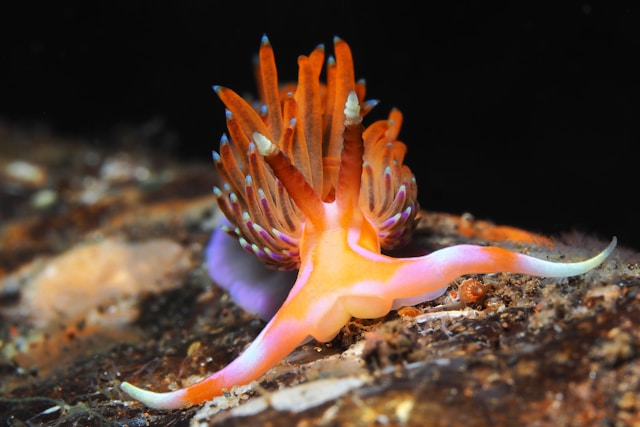
2. They protect coastlines from damage
Coral reefs act as natural barriers, protecting coastlines from storm surges, waves, and erosion. They significantly reduce wave energy by up to 97%, protecting coastlines from erosion and storm damage. Without reefs, many coastal communities would face increased vulnerability to extreme weather events, which are becoming more frequent due to climate change.
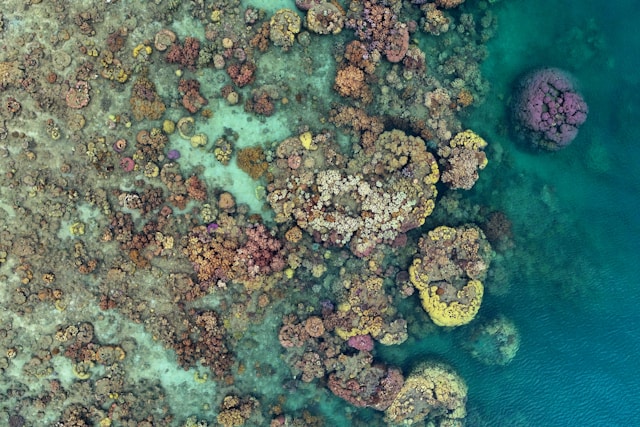
3. They contribute billions of dollars to the economy
Globally, coral reefs contribute around $375 billion annually through ecosystem services, including tourism, fisheries, and coastal protection. Dive tourism alone relies heavily on healthy reefs, making their preservation essential for local economies and the broader diving community.
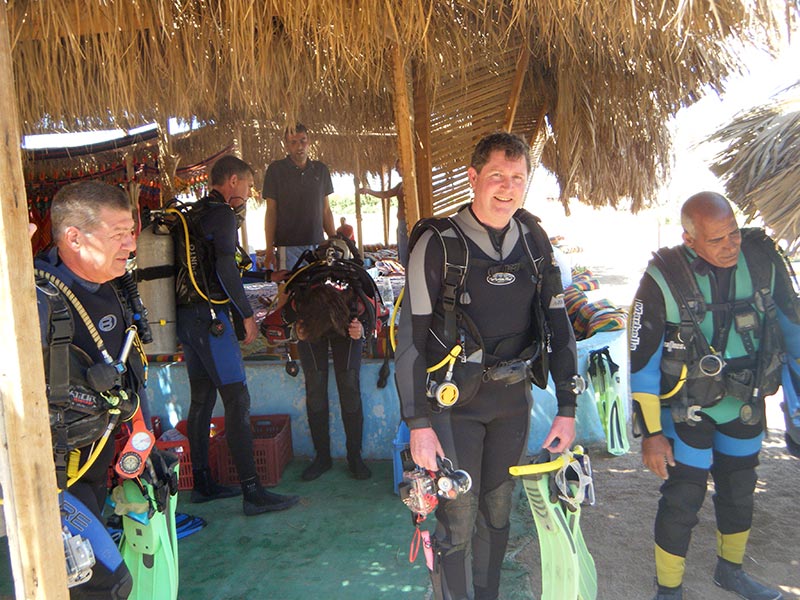
4. They reduce the impacts of climate change
Coral reefs play a role in the ocean’s ability to absorb carbon dioxide, helping to reduce the impacts of climate change. While coral reefs’ role in carbon storage is less than ecosystems like mangroves and seagrasses, healthy reefs contribute to the balance of marine ecosystems, which is vital for maintaining this function.
Five Threats to Coral Reefs
1. Climate change
Rising sea temperatures are one of the most significant threats to coral reefs. When waters become too warm, corals expel the symbiotic algae (zooxanthellae) that provide them with nutrients and their vibrant colours. This phenomenon, known as coral bleaching, weakens the corals and can lead to mass die-offs.
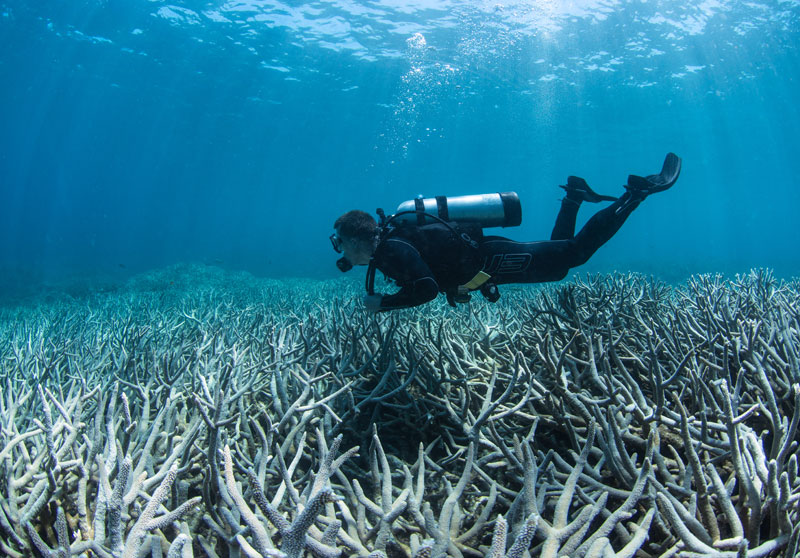
2. Ocean acidification
As oceans absorb more carbon dioxide from the atmosphere, their pH levels drop, causing ocean acidification. This process reduces the availability of calcium carbonate, which corals need to build their skeletons, threatening their growth and resilience.
3. Overfishing
Overfishing disrupts the delicate balance of reef ecosystems by removing key species that control algae growth or contribute to the food web. For instance, the loss of parrotfish, which graze on algae, can lead to algae overgrowth that smothers corals.
4. Pollution
Pollution from agricultural runoff, sewage, and plastic waste adds stress to already fragile coral ecosystems. Nutrient-rich runoff often leads to algal blooms that compete with corals for sunlight and space, while plastic debris and fishing lines can physically damage coral structures.

5. Unsustainable tourism
Whilst scuba diving and snorkelling bring people closer to coral reefs, careless practices such as touching corals, poor buoyancy control, or anchoring on reefs can cause significant damage. Unsustainable coastal development for tourism can also harm reef ecosystems.
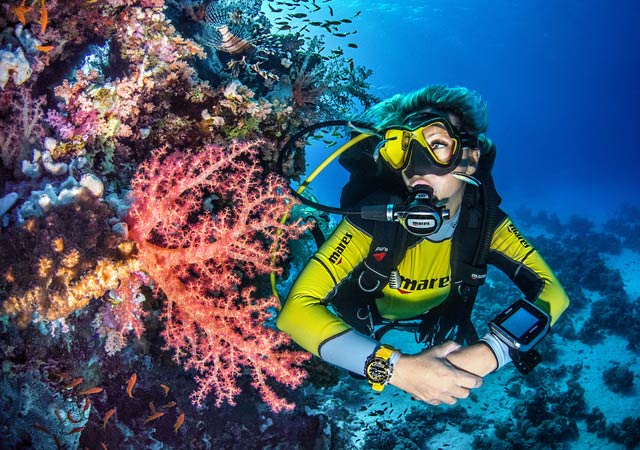
Is It Too Late to Save Coral Reefs?
The situation is dire, but there is still hope! Coral reefs are resilient and can recover if given the chance. Efforts are underway globally to mitigate damage and restore these vital ecosystems. Check out these inspiring coral restoration initiatives:
Coral Gardening
Organizations worldwide are working to restore damaged reefs by growing and transplanting coral fragments. Initiatives like coral gardening and artificial reefs provide a foundation for coral regrowth, helping ecosystems recover over time.
Marine Protected Areas (MPAs)
Establishing MPAs can significantly reduce human impact on coral reefs. By restricting fishing, tourism, and other activities, MPAs allow ecosystems to regenerate and thrive.
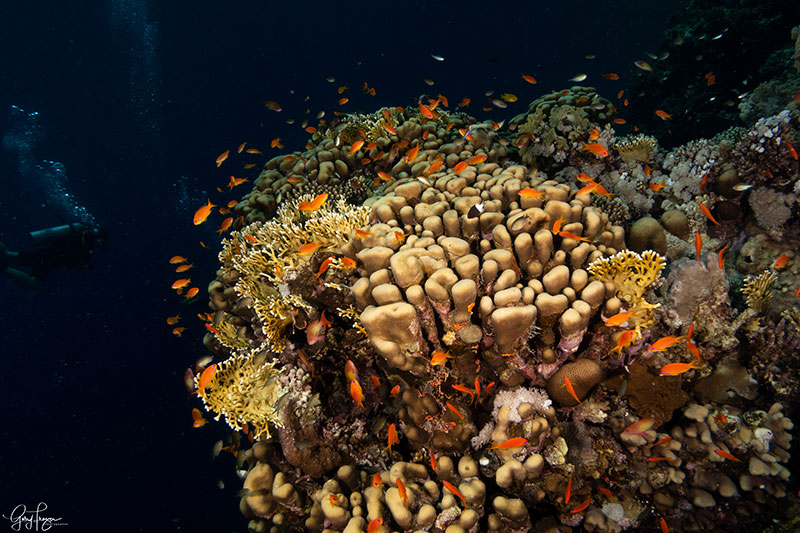
Reducing Carbon Emissions
Global efforts to combat climate change, such as transitioning to renewable energy and reducing carbon emissions, are critical for the survival of coral reefs. Divers can contribute by advocating for climate action and reducing their carbon footprint with simple lifestyle changes.
Sustainable Diving Practices
Scuba divers and freedivers have a crucial role in protecting coral reefs. Practicing good buoyancy control, avoiding contact with corals, and using reef-safe sunscreen are simple yet effective ways to minimize our impact. Supporting eco-conscious dive centers also makes a difference, choosing operators who prioritize sustainable practices.
What Can Scuba Divers Do?
1. Learn about coral ecology
Understanding the importance of coral reefs and the threats they face is the first step in becoming a reef advocate. Consider taking courses such as the SSI Coral Identification specialty or the Marine Ecology specialty, which provide valuable insights into reef ecosystems.
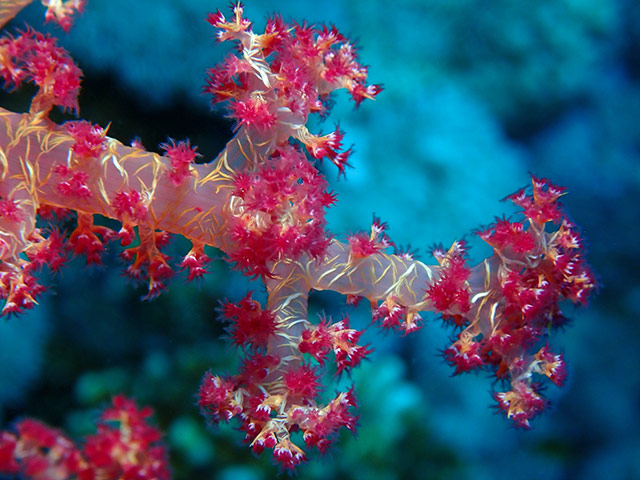
2. Participate in conservation efforts
Many dive operators offer opportunities to participate in reef cleanups, coral monitoring, and restoration projects. Volunteering on such initiatives not only helps reefs but also enriches your diving experience.
3. Advocate for policy change
Use your voice to advocate for policies that protect coral reefs, such as the establishment of MPAs, bans on harmful fishing practices, and regulations on coastal development. Collective action can lead to significant change.
4. Make simple lifestyle changes
Simple lifestyle changes such as reducing plastic use, switching to eco-friendly household products, using reusable containers, and minimizing single-use items can make a difference. These small changes help reduce waste and carbon emissions, supporting a healthier planet for coral reefs and marine ecosystems.
When travelling, take a reusable water bottle and shopping bags, and avoid single-use plastics to help reduce waste. Opting for direct flights, using public transportation, and staying at eco-friendly accommodations can also significantly lower carbon emissions. Additionally, choose local dive operators who practice sustainability and switch to reef-safe sunscreen and eco-friendly toiletries.
This article was written by Kathryn Curzon, a dive travel writer for SSI.

